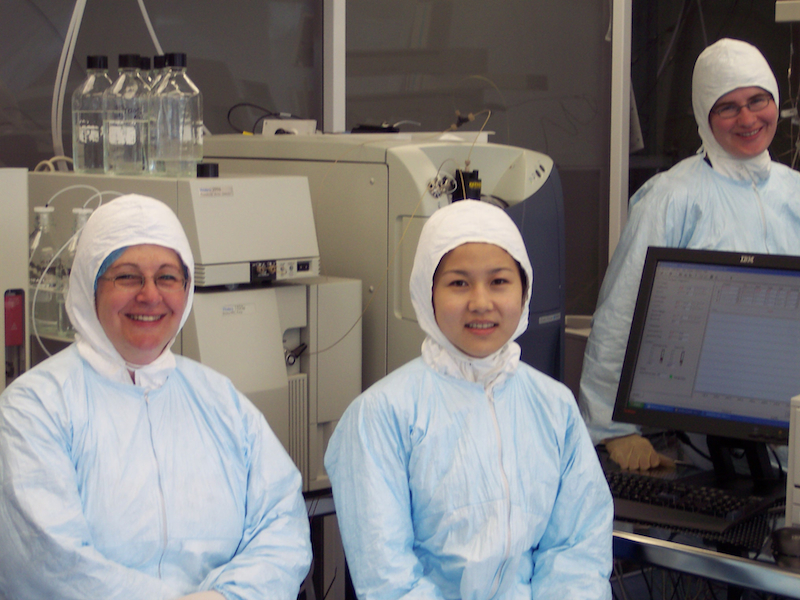Trace Analysis Facility
The Trace Analysis Facility (TAF) is a state-of-the-art, ultraclean (class 100 cleanroom) research analytical laboratory with the most advanced instrumentation for sample preparation and chemical analysis. TAF is a $2 million funded facility through Canadian Foundation for Innovation (CFI) (40%), Government of Saskatchewan (40%), and 20% from other partners including the University of Regina and industry (Waters, Agilent Technologies, K’Prime Technologies, Dionex, and ATS Scientific Inc.)
 |
TAF is dedicated to the identification and quantitative analysis of pesticides, drugs, and metals of environmental samples. The goal of the facility is to support research projects on environment processes and impact research and related projects. TAF will serve as a center of excellence for environmental analysis, allowing an unrivaled opportunity for training of highly qualified personnel to strengthen University of Regina institutional linkages and build stronger relationships with external clients including government agencies and private sector partners.
The greatest immediate impact of TAF will be in the areas of:
- Novel and new analytical methods for analysis of ultra-trace and trace analysis of contaminants in the environment.
- Sources, transport and transformation processes of pesticides and pharmaceuticals.
- Impact of contaminants on terrestrial and aquatic systems.
- Development of pollution abatement and remediation technologies through quantification of fate and impacts of petroleum products.
- Assessment and improvement of waste and water treatment technologies.
Mission
TAF is designed to facilitate the development of trace and ultra-trace methods of chemical analysis for a wide range of “real life” environmental sample matrices from air, water, soil, vegetation, biological tissues/fluids and industrial processes. The facility utilizes the integration of new and novel instrumental approaches into the development and advancement of existing analytical approaches for fully automated, low-cost, high sample throughput methods. During its first year of operation, 2006, organic analysis advancements in TAF will focus on active ingredients in pesticide formulations and their breakdown or metabolite products, and selected drug analysis as requested from contracts or large volume users.

